The document discusses the Diffie-Hellman key exchange algorithm, which enables two parties, Saghar and Suraya, to securely exchange a secret key over an unsecured channel. It outlines the key steps involved, including agreeing on a prime number and a primitive root, calculating public keys, and ultimately deriving a shared secret key. The process ensures that the communication remains confidential even if a third party, Khkula, is trying to intercept the conversation.
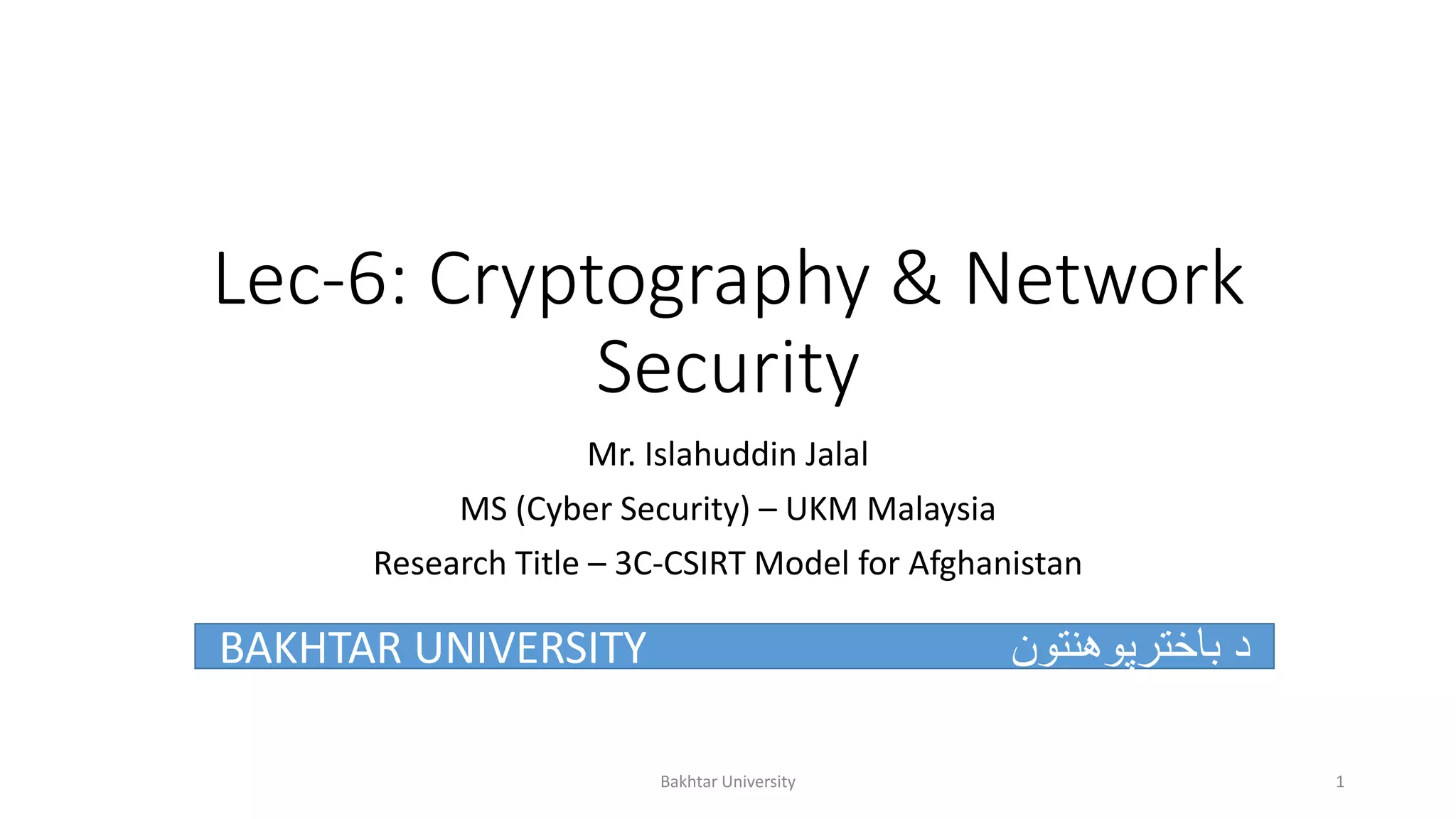
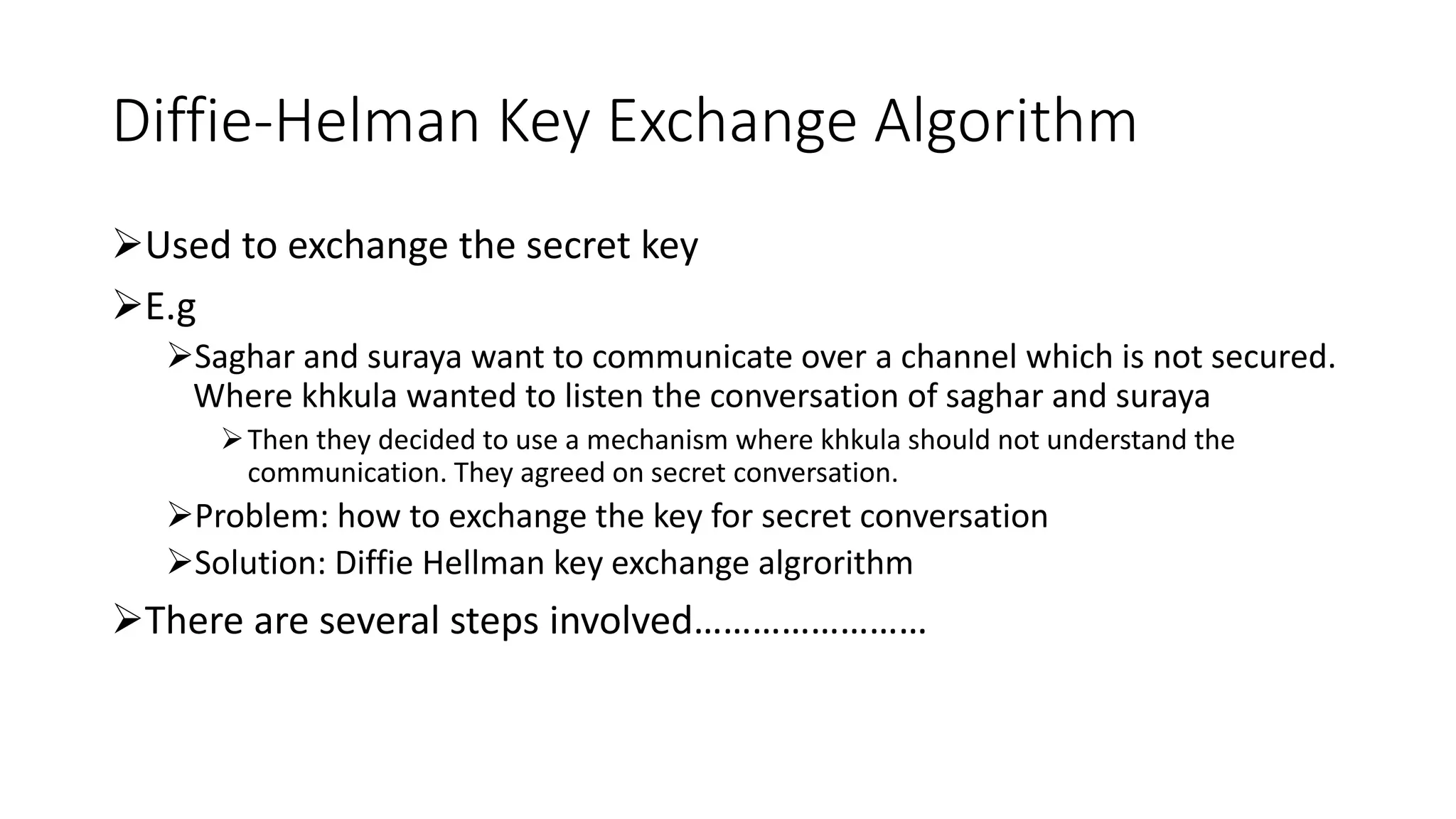
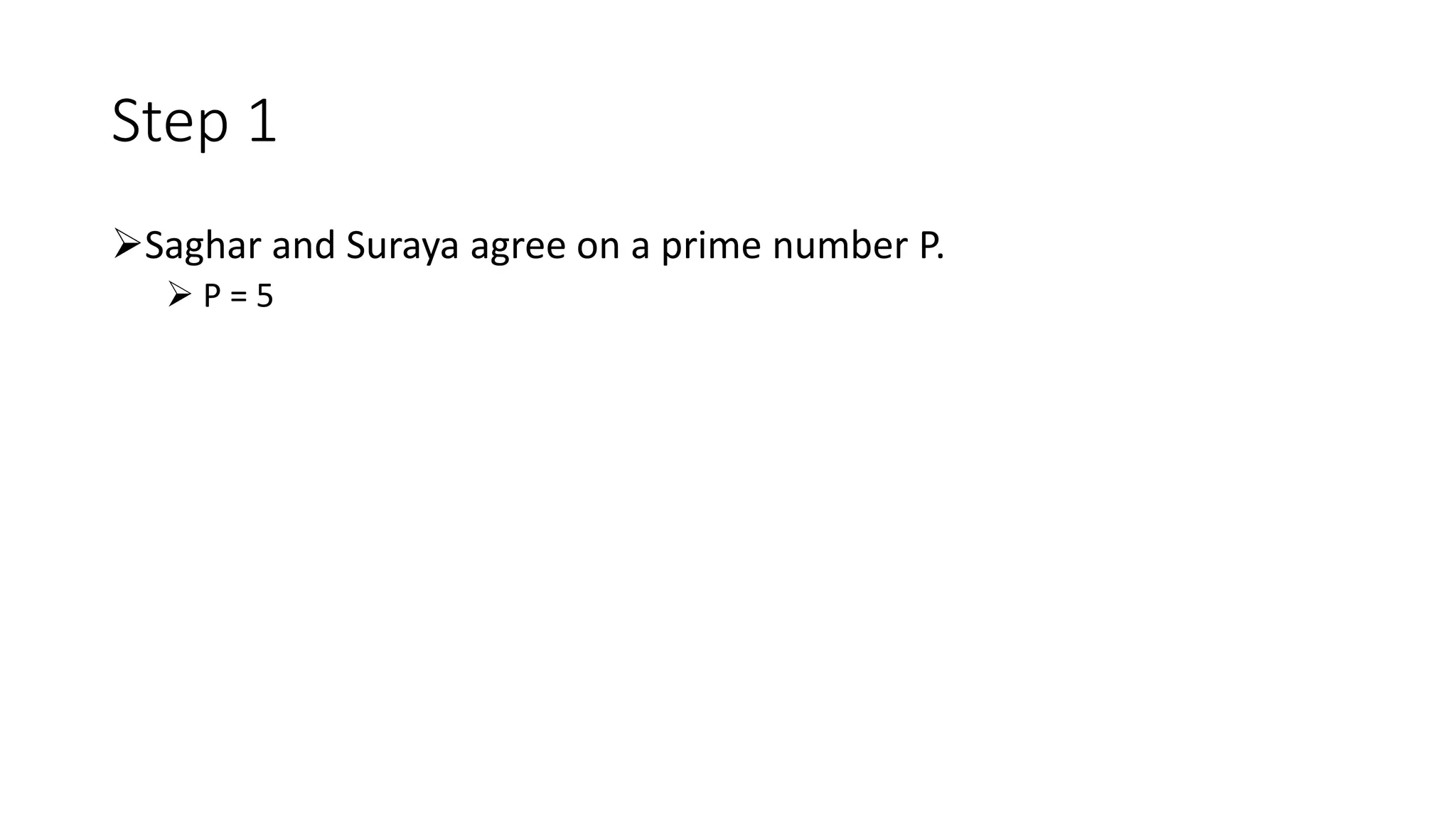
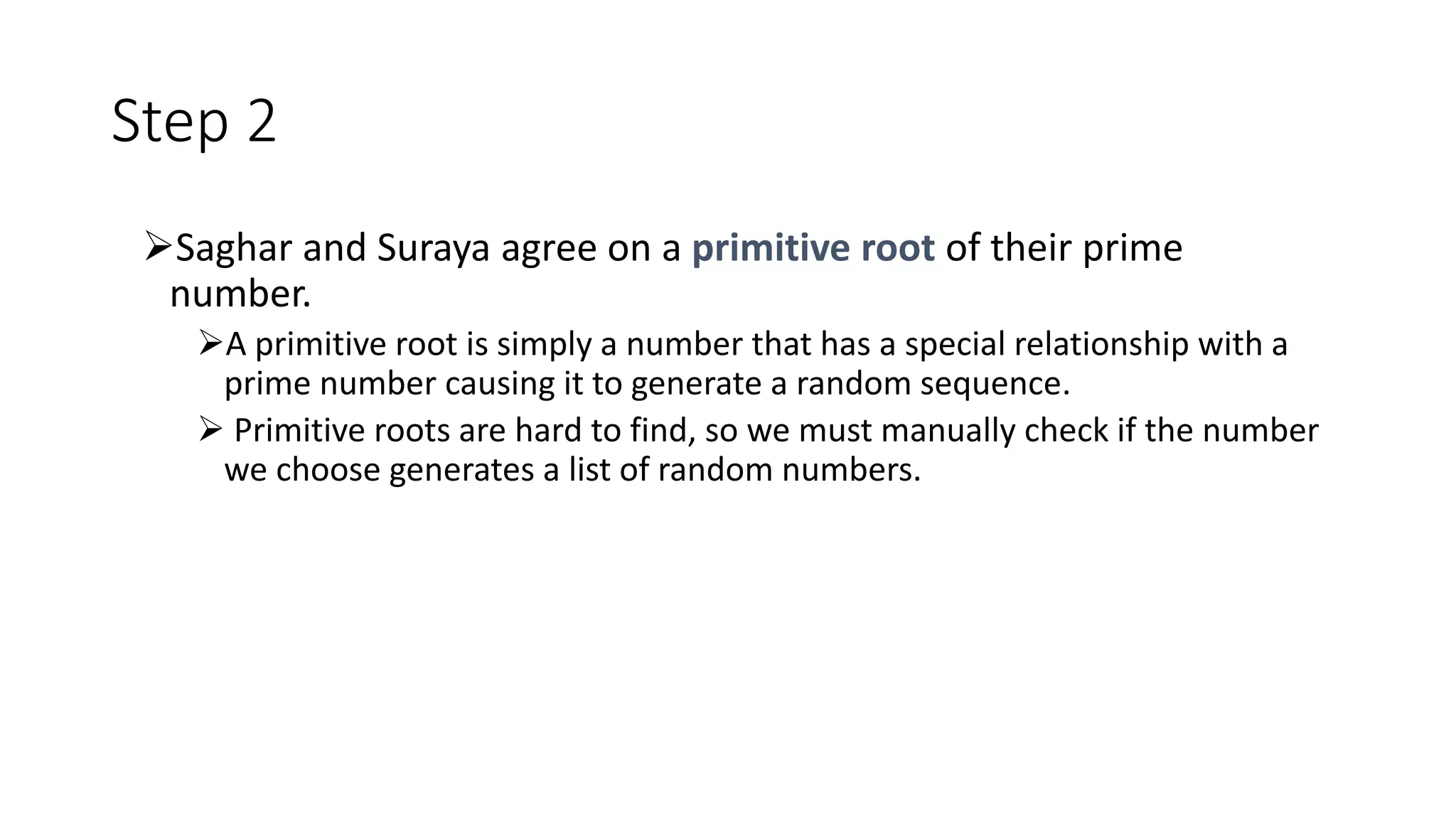
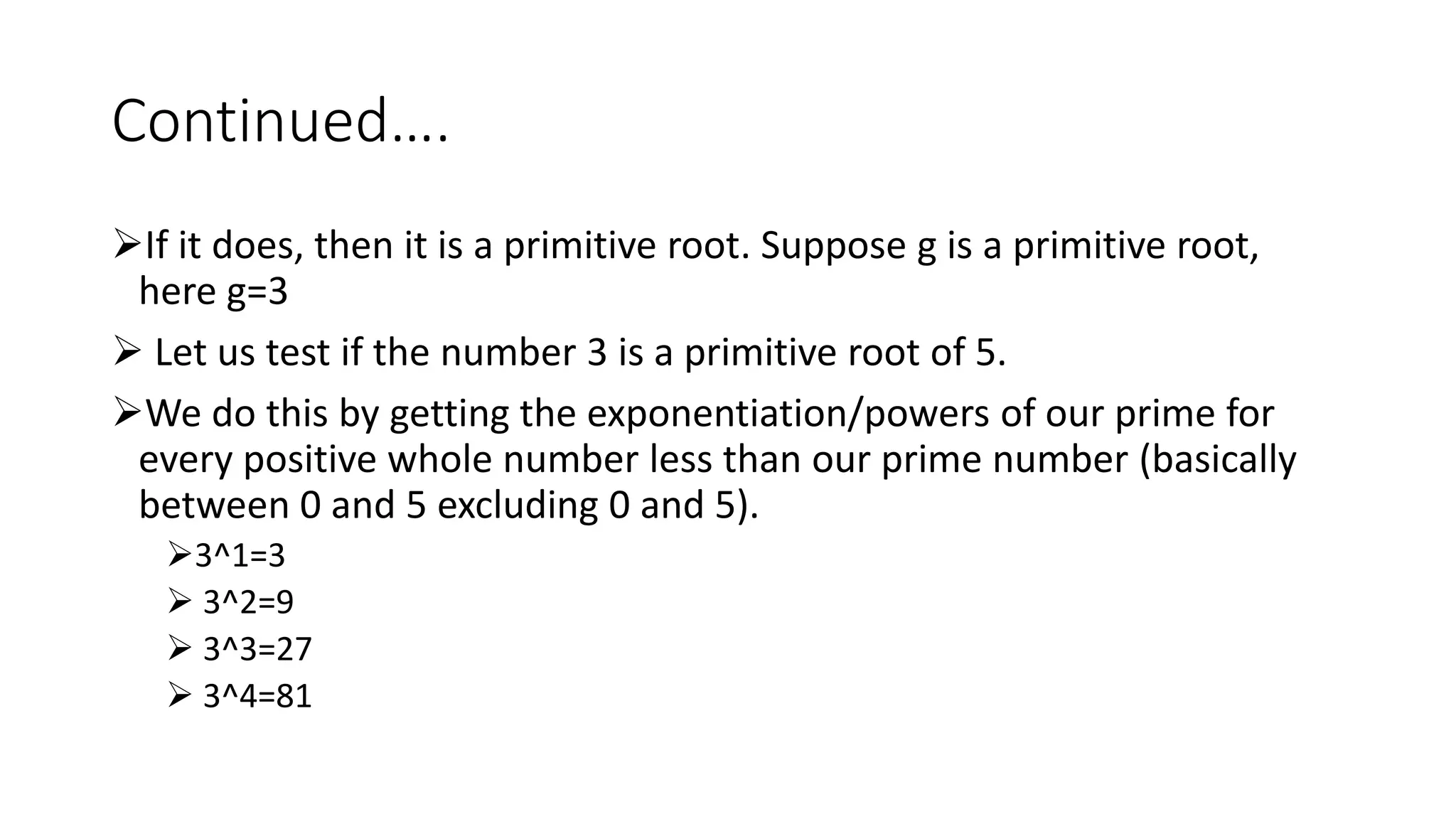
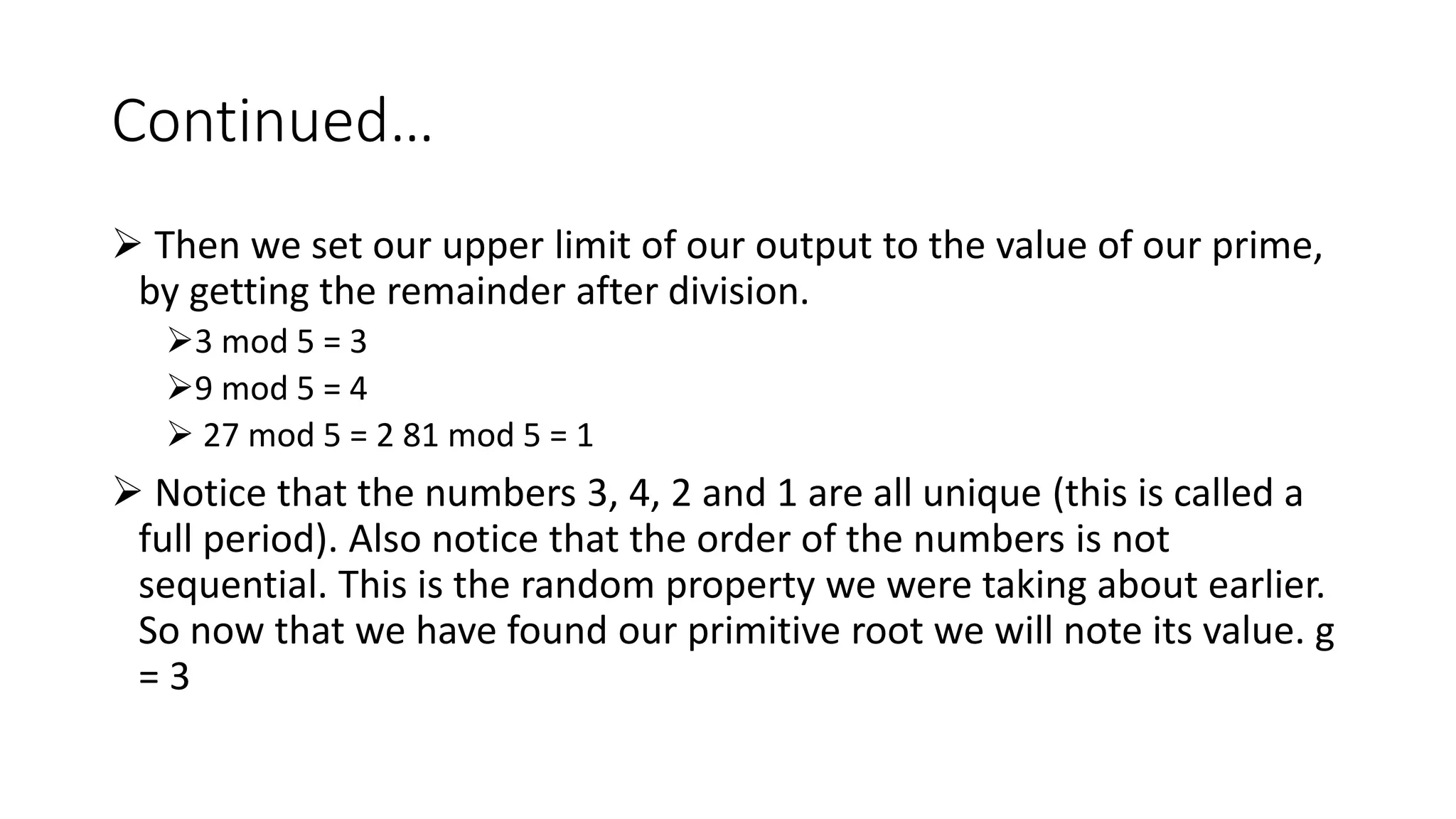
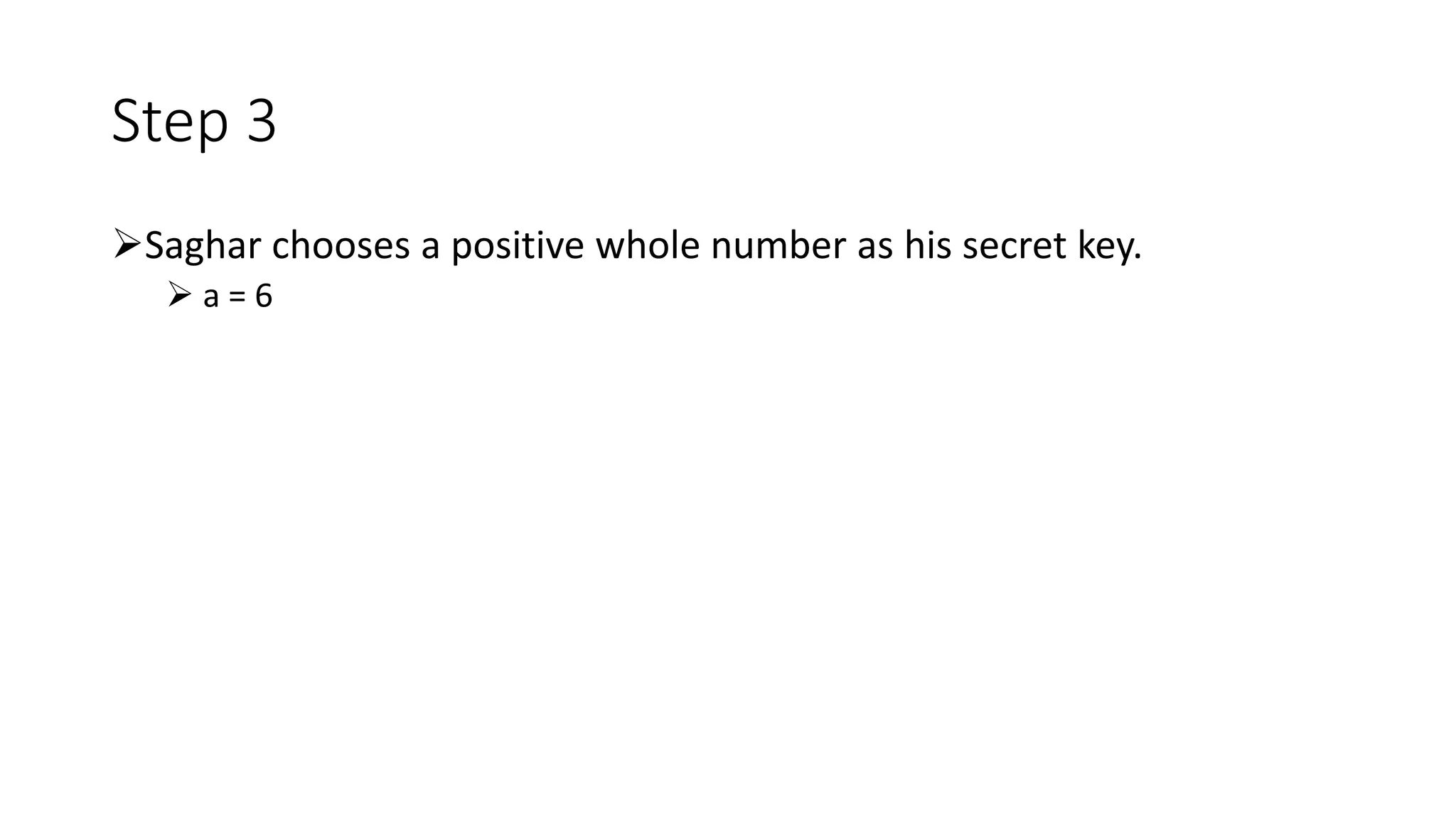
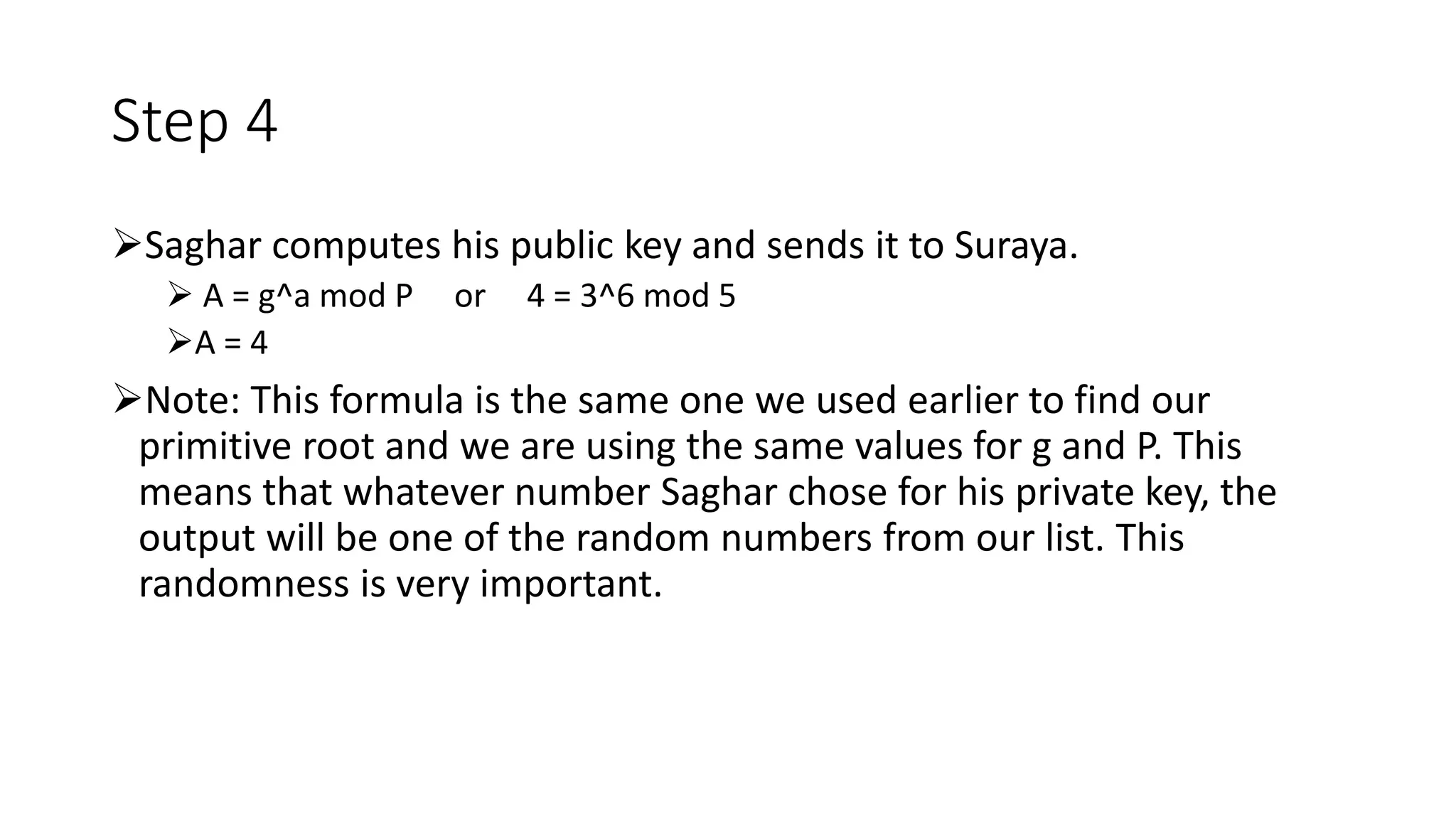
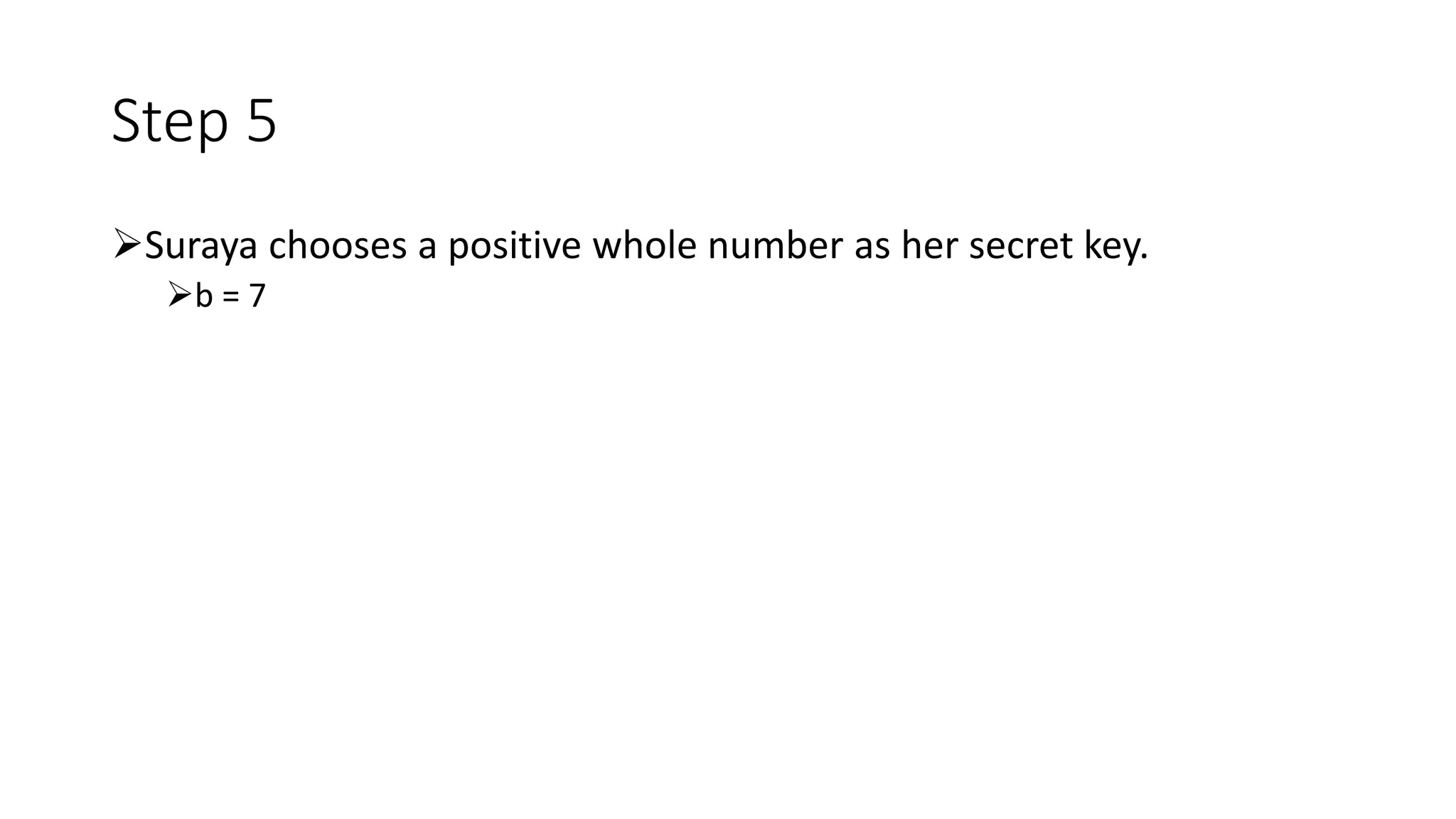
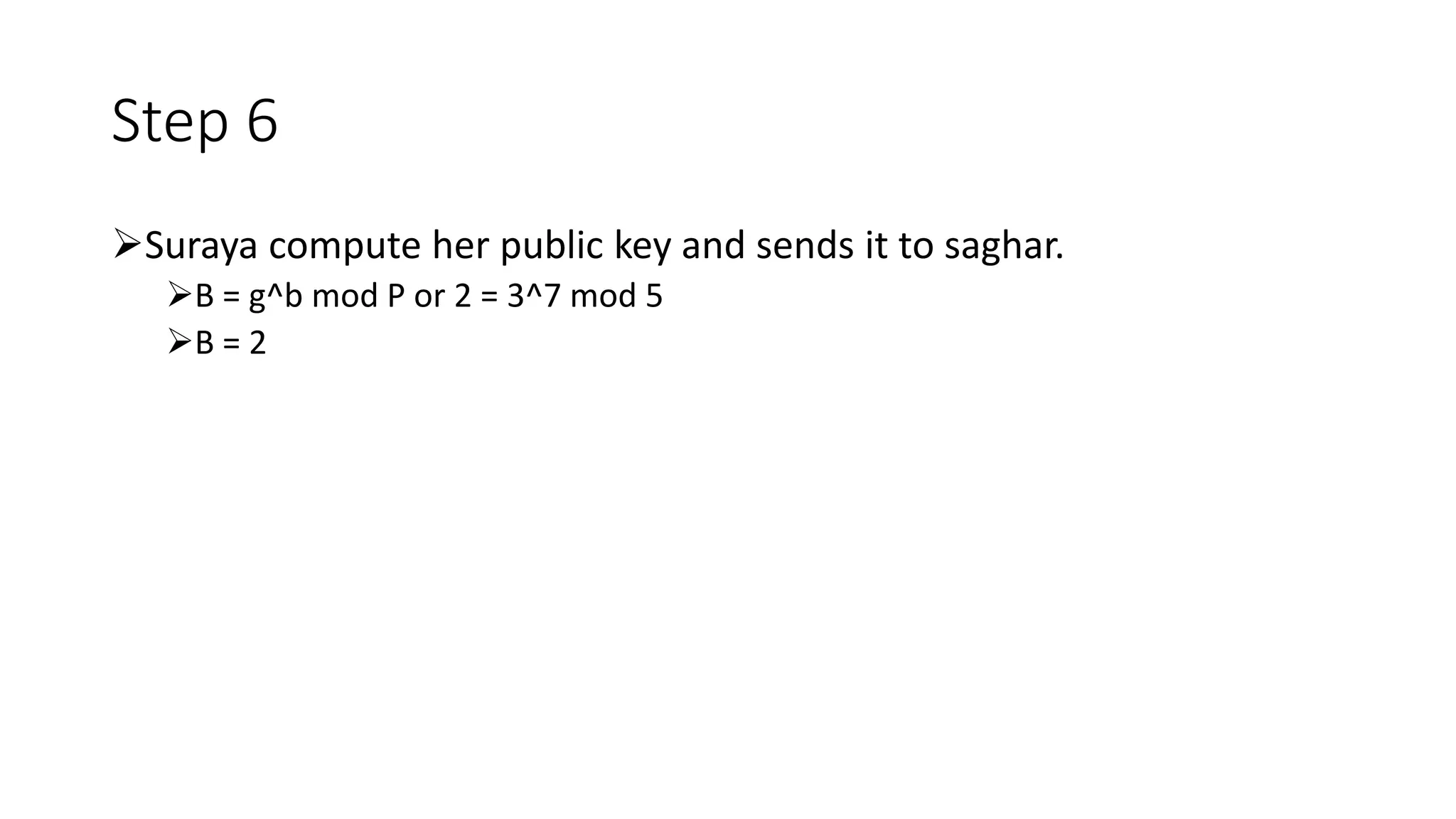
![Step 7
Saghar and Suraya now compute
a shared secret key [Shared Key] = [other persons public key]^[their own secret key]
mod P
Suraya:
Secret Key = S = B^a mod p (B=public key of Saghar, a=secret key of Suraya, q is the
primitive root)
S = 4^7 mod 5
S=4
Saghar:
Secret Key = S = B^a mod p (B=public key of Suraya, a=secret key of Saghar, q is the
primitive root)
S = 2^6 mod 5
S = 4](https://image.slidesharecdn.com/mscs2-lec6networksecurity-171209170744/75/Cryptography-and-Network-security-Lecture-6-11-2048.jpg)
